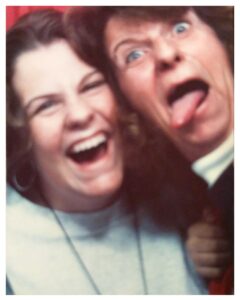
I talk about death a lot. So much so that I’ve made it a standard practice to warn my therapists about it during our first session so they don’t become alarmed. I explain that I’m a hospice volunteer and that I choose to sit with people who are actively dying so no one dies alone. This usually causes a moment or two of silence – though the moment is much less awkward in therapy than at a party – and then they ask me why.
Every time, I wish I had a better answer, something fully-formed and poetic. Instead, I can only attempt to articulate the emotions I feel when I think about what I do:
- Everyone should feel safe and not scared when they die
- It is a privilege to be there with them
- There is grace in it
I also explain that there are a lot of other things I can’t do – I’m terrible at talking to people and volunteering with animals would rip my heart out. I can, however, attend someone on their final journey. So, I do.
Musician Nick Cave discussed in a recent interview how loss defines our humanity and highlights that our lives are fleeting and precious. I’ve learned this at the hospice, sitting at the bedsides of patients day after day. I became accustomed to the tremendous magnitude and the simple ordinariness of death. I learned to look at it unafraid and accepting, with both sadness and equanimity. These skills were helpful when it was time to plan my mother’s death – and my own.
My mother had done no planning in the event she got seriously ill, injured, or incapacitated when I stood in her room at the skilled nursing facility in Albuquerque. I explained to her that they were discharging her for not complying with treatment for her broken hip. Sadly, the hip was not the biggest problem. Vascular dementia that had gone undiagnosed due to the pandemic and her living situation had also reached a crisis. We had few options unless I could get her to complete the statutory and medical durable power of attorney documents during one of her more lucid moments. It took me all day, but we got the paperwork done.
In the months since I became the decision maker for my mother’s finances and medical care, we’ve had many difficult conversations. I’ve moved her to Denver and, after a very unsuccessful attempt with me as work-from-home caregiver, she is settled in a facility for individuals with dementia. This is not how she imagined her final days. It is not how I imagined them either, but it is what we have, given the resources and circumstances. We’ve talked through each step – often multiple times – and I’ve had to deliver some hard truths. There is nothing quite like having to explain to your mother that she has dementia and is in hospice care.
My family has always spoken openly about death, dying, and our wishes surrounding them but my mom never made anything official. Everything is very official now. With her input, I’ve completed her Medical Orders for Scope of Treatment (MOST) form as well as planned for her cremation and memorial service. I’ve let her friends and family know what will happen when the time comes and keep them all updated via a Facebook group. I visit her every Saturday with a grande mocha frappuccino and remind her each time that cappuccinos are the hot ones.
I’m also updating my own serious illness and end-of-life wishes. I first wrote about them five years ago, on the fifth anniversary of my dad’s heart attack and quintuple bypass (yes, quintuple). Dad’s 10th anniversary will be this August and he’s still complaining about how expensive that trip to Colorado was – it all happened during a visit to see me. I argue that it was not the trips to the mall that made it expensive…
It feels different to fill out the Five Wishes booklet this time. I’m older, certainly, but I’ve experienced more loss and have more grief in my heart. I’ve also learned to love more fiercely and accept the roll of time. My perspective has changed. This is the last gift I can give my loved ones. By making the hard decisions about serious illness, end-of-life, and death myself, I open the space and grace for them to do what has to be done. It is the biggest act of love I can imagine, to help someone help you die. So, I am.

